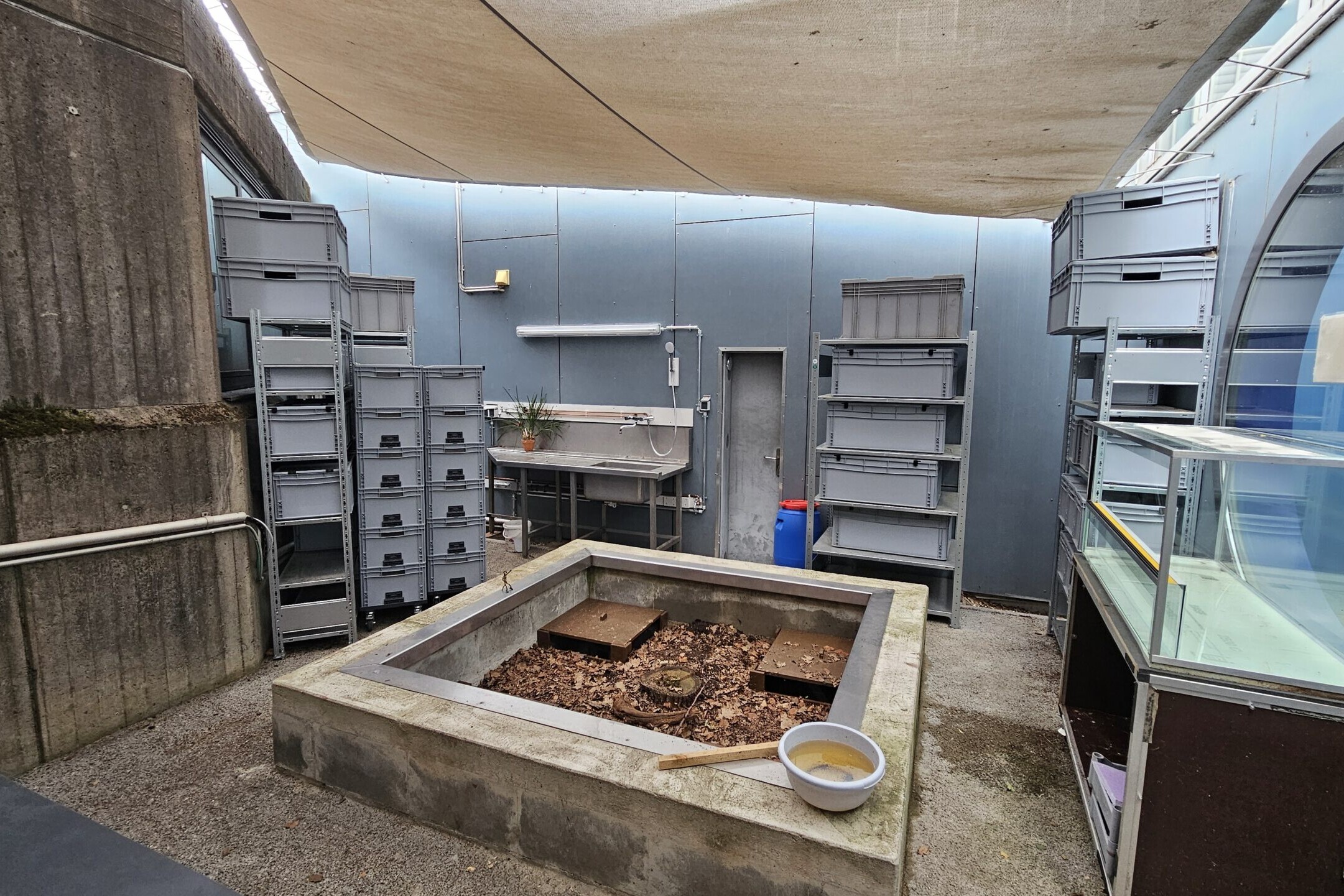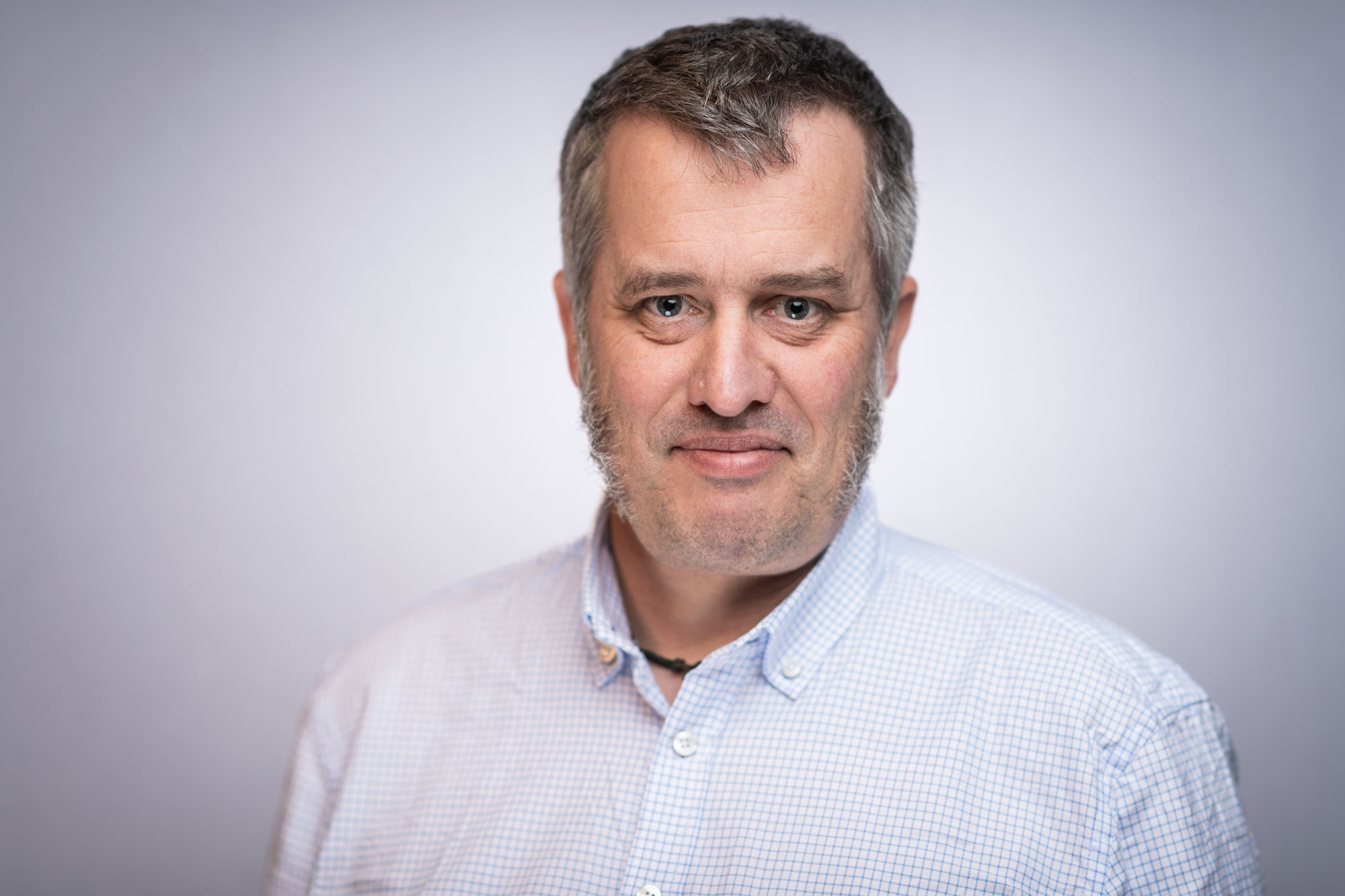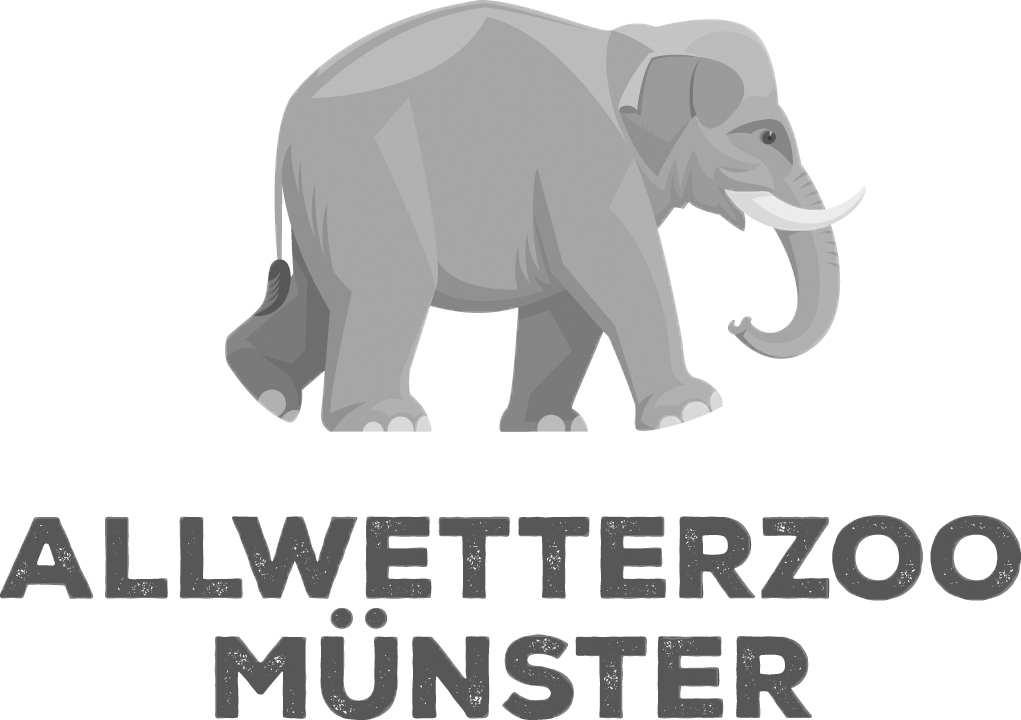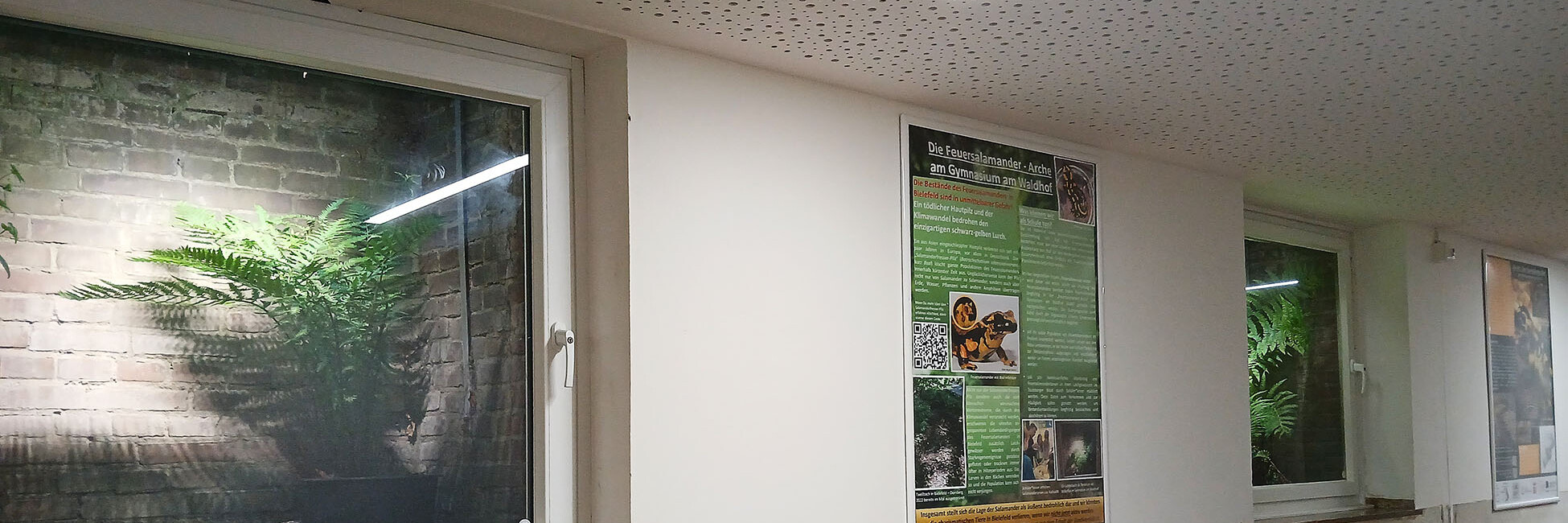The Allwetterzoo is Establishing a Regional Conservation Breeding Program.
Bsal has not yet reached Münsterland. However, if the pathogen reaches Münsterland, it could become critical for the fire salamander populations, as the fire salamander does not have a contiguous distribution area in Münsterland and the populations are sometimes very small-scale. If Bsal occurs here, an entire population can quickly be eradicated. Therefore, the Allwetterzoo, together with authorities and nature conservation organizations, wants to establish a reserve population. Supported by the waste management services in Münster. The facility will be visible to visitors, contains an area for overwintering, but also plastic crates suitable for salamanders and a display terrarium. This creates a tension between typical zoo terrariums that replicate habitats and breeding terrariums that are used for conservation breeding – and thus for housing around 60 individuals. To establish such a reserve population, animals are taken from nature. The first were collected as larvae in the Wolbecker Tiergarten after they spawned in a puddle in mid-November that threatened to dry out. Additionally, adult animals will be taken from nature this year. If necessary, the fire salamanders from November will be released back into the wild. However, the Allwetterzoo does not want to handle conservation breeding alone, as the animals should also be kept in cooperation with private keepers. This is also to minimize the risk of the entire reserve population being infected by a Bsal entry.
More information on the website of the Allwetterzoo Münster (German only).



